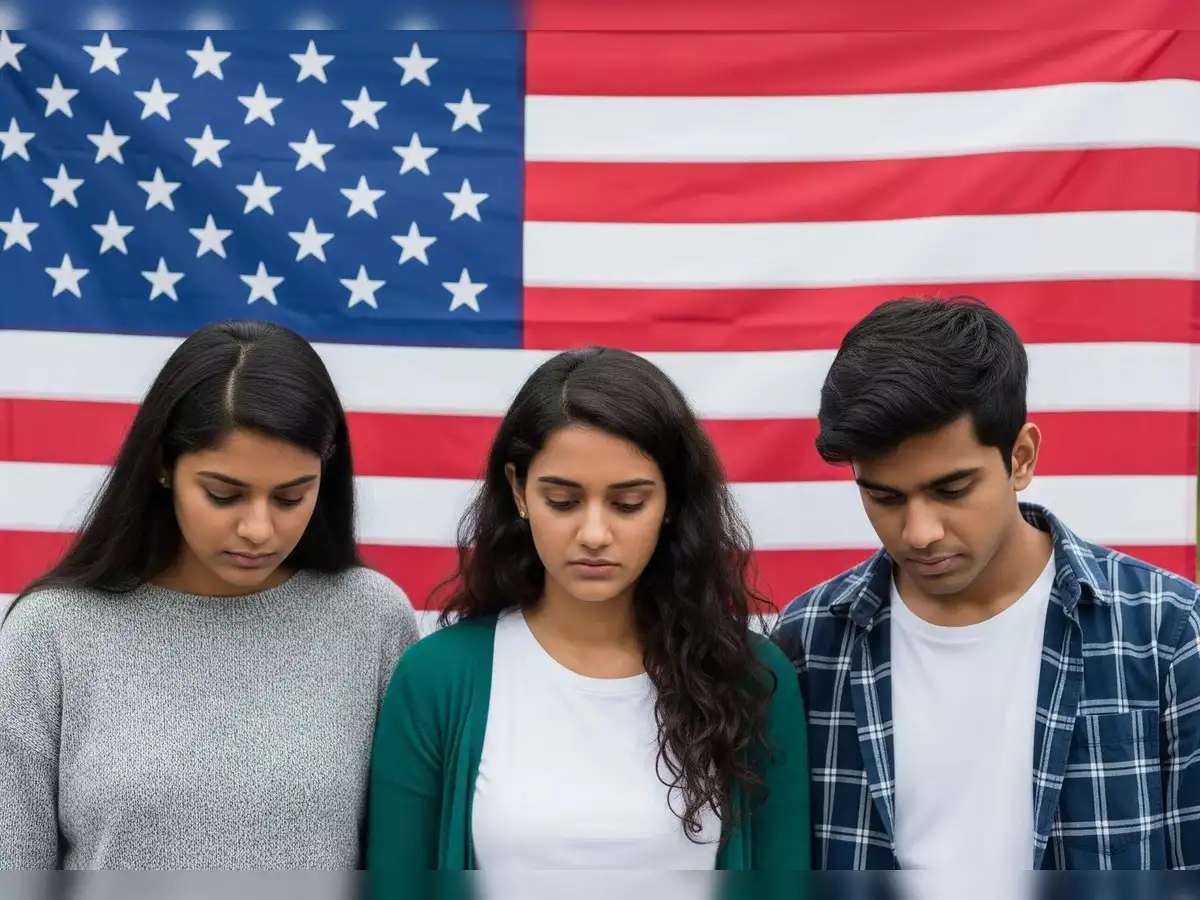

The landscape for Indian students pursuing education in the United States has become increasingly precarious, marked by a confluence of factors that threaten their prospects and create an environment of uncertainty. Recent policy changes, stricter enforcement of existing regulations, and a growing sense of unease are contributing to a challenging environment for these students.
Visa Challenges and Increased Scrutiny
Securing a student visa remains a significant hurdle, with a notable decline in visa issuances to Indian nationals. Data indicates a 38% drop in F-1 student visas granted during the first nine months of 2024 compared to the same period in 2023. The visa application process has become more intricate, with stringent documentation requirements and a greater emphasis on English language proficiency and financial stability. Moreover, the U.S. government has resumed F1 student visa processing with enhanced digital screening protocols, including scrutiny of social media activity. Applicants are now required to declare their social media handles, and consular officers may review their online presence for any content that could be interpreted as hostile towards the U.S.. Declining to make social media visible could be misconstrued as an attempt to hide something, potentially jeopardizing visa approval.
Optional Practical Training (OPT) Concerns
The Optional Practical Training (OPT) program, which allows international students to work in the U.S. for a period after graduation, has been a critical pathway for Indian students to gain professional experience and offset educational costs. However, the OPT program faces potential changes and increased enforcement, creating anxiety among students. A bill was introduced in Congress in April 2025 proposing the elimination of the OPT program, which would significantly disrupt the post-graduation plans of Indian students. While the bill's passage through the Senate is uncertain, it has nonetheless triggered widespread concern. Even without legislative changes, the U.S. Immigration and Customs Enforcement (ICE) is tightening its monitoring of OPT participants, with increased scrutiny of compliance with program requirements. International students on OPT are allowed a maximum of 90 days of unemployment, and failure to report employment information can lead to SEVIS termination and potential deportation.
Financial Burdens and Shifting Preferences
The cost of education in the U.S. continues to rise, placing a significant financial burden on Indian students and their families. Tuition fees at top universities are prohibitively high, and the average annual cost for a student, including living expenses, is approximately $38,270. A new 1% remittance tax on foreign transfers is expected to affect many students who send money back home to support their families or repay loans. The combination of high costs and increased visa scrutiny has led some Indian students to rethink their study abroad plans and consider alternative destinations. Germany, France, and New Zealand have seen record growth in Indian student enrollment, offering high-quality education at a lower cost.
Impact of Political Climate
The political climate in the U.S. has also contributed to the sense of unease among Indian students. The Trump administration's stricter immigration policies and anti-immigration rhetoric have created a climate of fear and uncertainty. Some students are concerned about potential changes to visa durations and the possibility of increased denials for H-1B visas, which are often pursued after OPT. The deportation of international students on the grounds of activism or alleged links to terrorism has further heightened anxieties.
Adapting to the New Reality
Despite the challenges, the U.S. remains a desirable destination for many Indian students seeking quality education and career opportunities. To navigate this evolving landscape, Indian students need to be well-informed, proactive, and prepared for increased scrutiny. They should ensure their documentation is accurate and complete, maintain a clean and consistent digital profile, and stay connected with their universities for guidance and support. It is also crucial to have a clear understanding of their rights and responsibilities as F-1 visa holders and to comply with all OPT regulations. While the path to studying and working in the U.S. may be more challenging, Indian students can still achieve their academic and professional goals with careful planning and diligent execution.